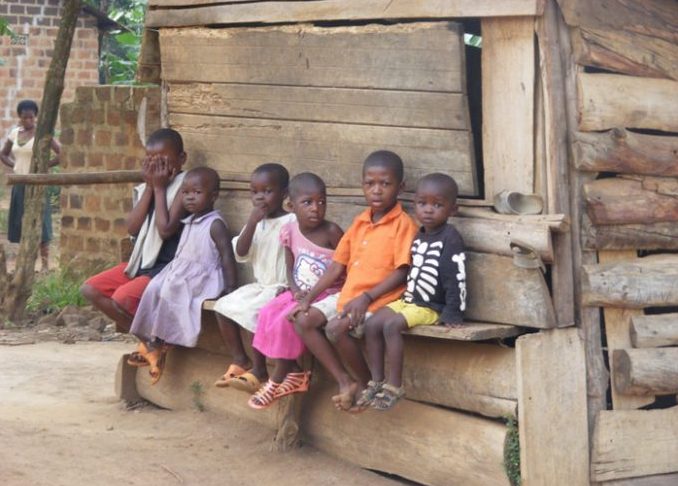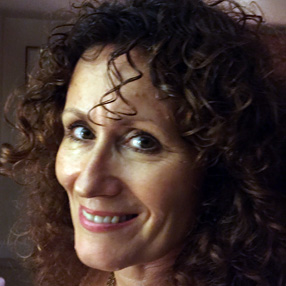
Ugandan kids are delightful but they live tough lives by Western standards.
With the third highest birth rate in the world, kids are everywhere in Uganda. Slung on a hip, being coralled by older siblings or just sitting playing in the dirt, Uganda has a very young and inquisitive population.
“Mzungu, mzungu bye!” The kids scream at me everywhere I – the mzungu – go. They never fail to make me smile. Few conversations go beyond “how-are-you? I’m fine” but they’re always so excited just to get a wave back.

Happy children Uganda
The reasons for such a high birth rate are many and complex, it’s not just about access to contraception. After a year and a half living in Uganda, I only understand a few of the reasons: infant mortality is high at 87 deaths per 1,000 births; big families are admired (having many children improves your status); pride; and besides, what else do you do for entertainment if you don’t have TV?
Despite an abundance of fertile land and the weather that, in most parts of the country means two harvests a year are possible, many children are malnourished: their bellies may be full but they don’t have a balanced nutritious diet. Almost one third of children under 5 have stunted growth.

The children of Kapchorwa, eastern Uganda, on slopes of Mount Elgon
One of the major household chores is collecting water, usually performed by children and women. Toddlers are given tiny yellow jerry cans; the bigger you get, so the size of the jerry can increases. In the countryside you may have to walk miles everyday to find a river. In Kampala I see the children from the slum collecting water that washes down the hill from a domestic overflow. 48% of the country’s population is without access to clean water.

Children and assorted jerry cans below Sipi Falls, eastern Uganda
Danger is everywhere here. One of my first impressions of Kampala was seeing a husband and wife on the back of a boda boda tearing down one of the better, i.e. faster, roads. Three adults on the bike, the lady with a baby in her arms. Our eyes met: the baby looked terrified.
Human sacrifice (to bless the fortunes of a new business for example) is a modern phenomenon that is on the increase in some neighbourhoods. Ugandans say it is a crime brought into the country by ‘outsiders’. Children are easy targets.
Burning hot charcoal stoves are left untended outside houses – but how can you have eyes in the back of your head? Household burns are frighteningly common.
At the local Super Grocery, I spot a little girl wondering around at the back of the shop. I haven’t seen her before. The shopkeeper tells me “She’s my neighbour’s child. The father died last year and now her mother’s died. I’ve had her tested and she’s negative.” It’s a very matter of fact conversation about the heart-breaking impact of HIV / Aids as I buy my breakfast. “What else can I do?” she said “but take her in and look after her.”
“Everyone takes care of the African child” my Ugandan boyfriend reminds me.

Children kids at Royal Pride Academy are fascinated by the new ‘pop-up’ reading books given by VSO volunteer friends Alan and Alison. Their friends and family in the UK raised money to have concrete floors laid in the classrooms, so they no longer get flooded
PHOTO: the kids at Royal Pride Academy are fascinated by the new ‘pop-up’ books given by VSO volunteer friends Alan and Alison. Their friends and family back home raised money to have concrete floors laid in the classrooms, so they no longer get flooded.
The number of orphaned and vulnerable children due to AIDS is estimated at 1.7 million and is expected to rise to 3.5 million by 2010. This, in a country of just 30 million people.
Universal Primary Education means every child is entitled to a free education but with very poorly paid teachers, facilities (a roof and an old wooden bench), and class sizes of 100 and even 120, it’s a numbers game where quality of education takes a back seat to quantity of pupils through the door. That said, the standard of the children’s work (I have a glimpse of beautiful neat handwriting for instance) can be amazing, the discipline second to none (British schoolchildren take note), and the dedication of the teachers truly humbling. They survive on a pittance and many contribute half their wages to help keep the schools open.
Many Ugandan children go to boarding school, as many as 36 kids in one dorm! All sleeping in ‘triple deckers’ (triple bunk beds). The kids all have to do their own washing – by hand of course – a world away from the pampering I got at a British boarding school!

Washing dries on the barbed wire boundary fence at Equatorial College School in Kamwenge, western Uganda
On the brighter side of life, girls walk arm in arm, boys – and even men – walk hand in hand. Camaraderie is everywhere: adults often talk fondly of their O.B.s and O.G.s (Old Boys and Old Girls from school) so friendships forged at school seem to last and last. Life here is simpler in many ways yet mere everyday survival is more complex.
So where would I choose to have a child – the UK or Uganda? That’s a hard one, you’ll have to keep following my blog to see how that particular personal decision pans out.
This post has been written for Lonely Planet’s Kids Around the World blog carnival kindly hosted by Glennia Campbell.




























What vitamins are children short in east africa.
I have son in kenya and im from ireland..tks
Hi Mike, I’m not the best person to ask but I know that Ugandans don’t value the importance of fruit and vegetables like we do in Europe. Kids may eat (fill their bellies) but are they getting the right nutrition? Look up Mulago Hospital’s Mwana Mugimu Nutrition Unit. They take on a lot of abandonned and malnourished children.